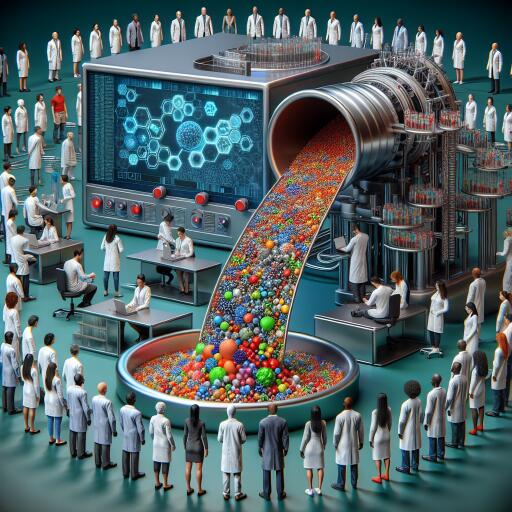Revolutionizing Drug Discovery with Advanced Machine Learning
The pharmaceutical landscape is being dramatically transformed by the integration of machine learning into virtual drug screening processes, significantly enhancing efficiency and scale. A groundbreaking study illustrates how this technology reduces the time required to process 1.56 billion drug-like molecules by tenfold, marking a significant milestone in drug discovery efforts.
A collaboration involving researchers from the University of Eastern Finland and industry partners has leveraged the power of supercomputing to execute one of the most extensive virtual drug screenings ever undertaken. The initiative aims to identify novel molecules with potential therapeutic effects, an endeavor that is increasingly vital as the search for effective drug compounds becomes more challenging.
In the realm of pharmaceutical research, the quest for new drugs often hinges on the ability to rapidly screen vast libraries of compounds. These libraries contain millions of small organic molecules that could potentially inhibit specific targets, such as enzymes critical to bacterial resistance or viral infection. As these libraries expand, so too does the computational challenge of processing them, with traditional methods becoming impractical for the task at hand.
Traditionally, screening a billion-scale compound library against a single drug target could span months or even years due to computational limits. However, this study has harnessed one of Finland’s most powerful supercomputers, offered by CSC – IT Center for Science Ltd., in conjunction with industry insights from Orion Pharma, to push the boundaries of what’s possible with machine learning.
The research team began their journey by conducting an extensive virtual screening campaign, evaluating 1.56 billion drug-like molecules against two pharmacologically relevant targets using supercomputers for nearly six months. This process involved molecular docking, a computational strategy that simulates how small molecules fit into a target’s binding region and calculates a “docking score” that reflects the effectiveness of this fit.
Following the establishment of a baseline through traditional methods, the study ventured into the realm of machine learning with the introduction of HASTEN, a tool designed by Orion Pharma’s Dr. Tuomo Kalliokoski. HASTEN employs machine learning to analyze the properties of molecules and predict how they influence docking scores, thereby streamlining the screening process.
Published in the Journal of Chemical Information and Modeling, the research showcases a pioneering comparison between machine learning-enhanced docking techniques and conventional screening methods on a giga-scale. The study, titled “Machine Learning-Boosted Docking Enables the Efficient Structure-Based Virtual Screening of Giga-Scale Enumerated Chemical Libraries,” represents a significant leap forward in drug discovery, making the screening process both faster and more feasible on a large scale.
The integration of machine learning into drug discovery not only expedites the screening process but also opens up new possibilities for identifying therapeutic compounds more efficiently. This innovation promises to accelerate the pace of pharmaceutical research and bring much-needed medications to market more quickly, offering hope for patients waiting for effective treatments.










